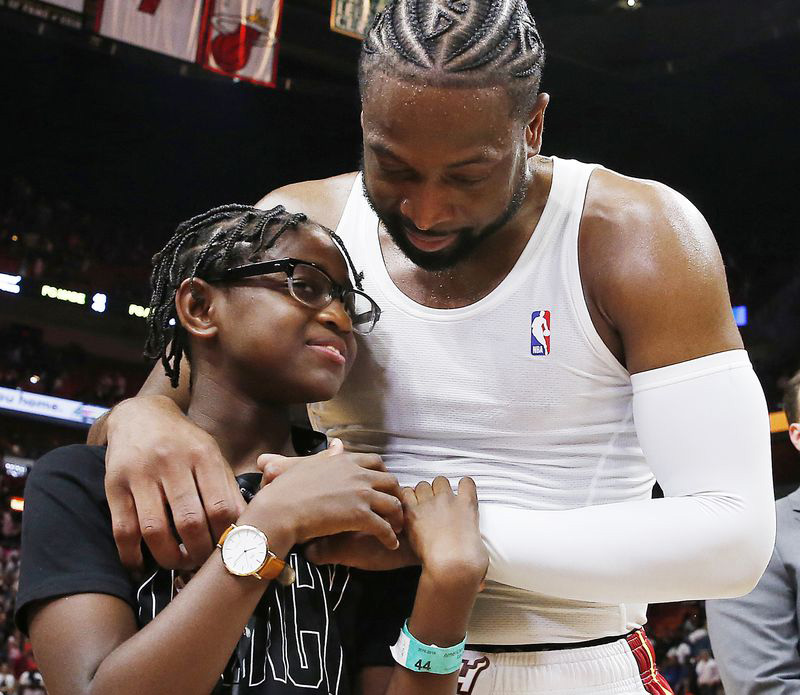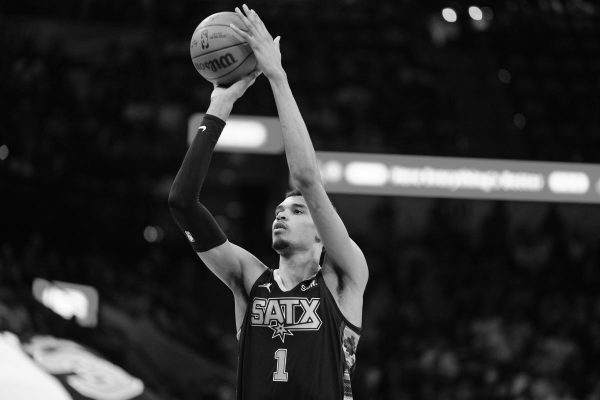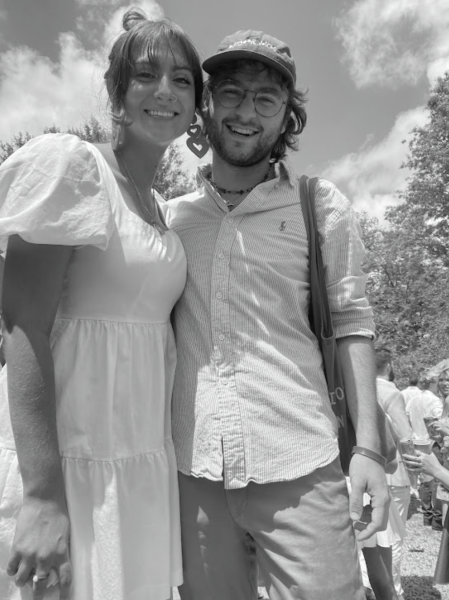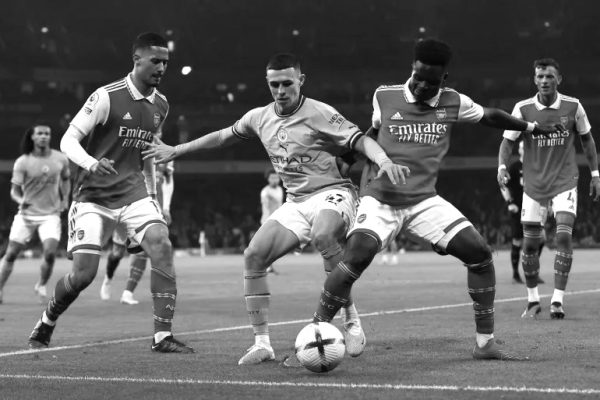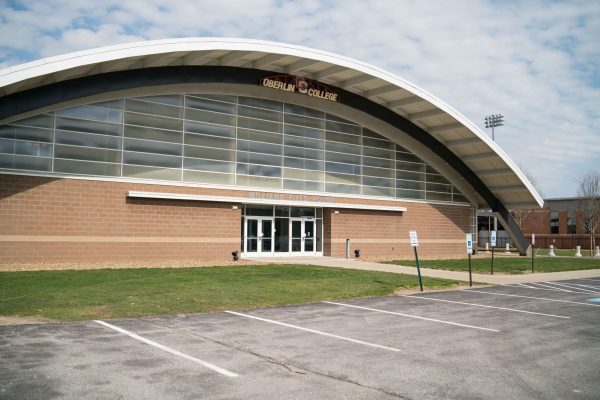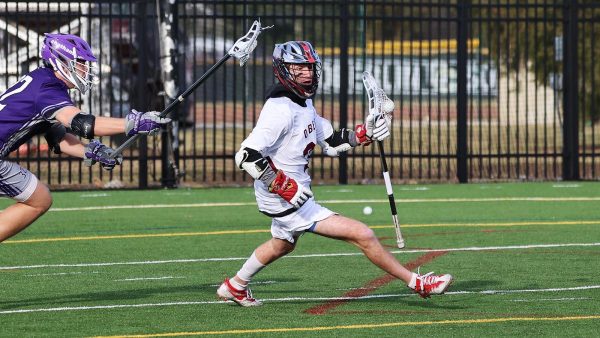The Wade Family’s Positive Influence
Photo courtesy of Getty Images
Former NBA player Dwyane Wade and daughter Zaya Wade.
NBA star Dwyane Wade recently announced that his daughter, Zaya, is transgender. This announcement was immediately met with support from those who saw Wade’s acceptance of his daughter’s gender identity as evidence of a shifting norm; and criticism from those without a full understanding of what this announcement means, both for the Wade family and for society as a whole.
At Oberlin, the separation between the LGBTQ+ community and others, like the Black and athletic communities, is not as stark as it is in the majority of American culture. This is notable considering that these communities are not mutually-exclusive. That being said, several student athletes at Oberlin see Wade’s announcement as a great moment for the future of understanding the intersectionality of these communities.
“I thought it was really brave of him to say that to everyone, to the public,” said College second-year and softball player V Dagnino, who identifies as queer. “It’s not easy for any parent to come out and speak about their child. From my own experience, and my parents raising me, they were terrified at first because they saw the life that it was to be queer, and they were really concerned that I’d face hatred and discrimination, so they tried to shield me.”
The athletic community is often regarded as being behind-the-times when it comes to social justice issues, especially those surrounding the LGBTQ+ community.
“As a trans and queer athlete, saying that there’s a gap feels weird to me, as if me and other queer athletes have to ‘pick,’” said College fourth-year and ultimate Frisbee player Eli Presberg. “However, I think [athletics], especially men’s athletics, both stereotypically and actually can be a really homophobic and transphobic environment.”
Having an athlete with such a heightened profile, like Wade, advocate for the inclusion of LGBTQ+ community in such a public and personal manner could help mend the complicated, and often strained, relationship between these communities.
“I think that what Dwyane Wade is doing is very inspiring, to see someone who’s an NBA champion using his platform to say [something along the lines of], ‘This is my daughter, and I’m so proud of her, and this is who she is becoming.’” said Dagnino. “I thought that was amazing, and I do think it’s a step in the right direction to normalizing [queerness] in the athletic community.”
While it is undeniably helpful that a man of Wade’s stature is helping to push the needle in the right direction, College third-year and track and field athlete Malachi Clemons believes it will take more to fully shift the relationship between athletics and queerness, pointing to former NFL player and openly gay man Michael Sam as an example.
“[He] was [Southeastern Conference] defensive player of the year [in 2014],” said Clemons, referencing Sam’s college playing career. “And where is he now? I think it takes a bigger step. I think things like this can help, but I think it takes a bigger step.”
Presberg shared similar sentiments.
“I distinctly remember when [former NBA player] Jason Collins came out in 2013, and being so astonished that he was the first person to come out in a major men’s sport,” said Presberg. “That was only seven years ago, so I think that this process is both slow and moving in the right direction, and that Dwyane Wade’s public support is a part of that. … I think ultimately it’s much more on the coaches and leadership of individual teams to actually check people.”
Dwyane Wade’s public announcement and acceptance of Zaya’s identity is not only a step for the athletic community, but it’s also a strong step toward acceptance of queer identities in the Black community.
“I think the Black community and the LGBTQ community haven’t always gotten along,” said Clemons. “I think religion plays a huge part of it, in addition to the concept of toxic masculinity and [the desire] to prove one’s manhood [in the Black community].”
The struggle for tolerance and acceptance of LGBTQ+ identities within the Black community has been well-documented. Part of the issue, Dagnino argues, is the way we typically frame queerness in our conversations and activism surrounding the topic.
“When we talk about what it means to be queer and advocating for trans rights, gay rights, we talk about it for the average able-bodied white male or white female,” Dagnino said. “We often forget to talk about the communities where there are people of color and don’t talk about Brown bodies, or Black bodies, or Asian bodies. … There’s always been a disconnect between the LGBTQ community and Black people because there’s never been people [visibly] advocating for those rights, and we often neglect to talk about that. What Dwyane Wade is doing is really good because he’s really shedding a light on what queer can mean to people of color.”
While Dwyane and Zaya Wade have both received an enormous amount of support from a broad range of communities, they have also received significant backlash. A notable example was a video posted by Boosie BadAzz, in which the rapper admonishes Dwyane Wade for “allowing” Zaya to identify as a woman, misgenders Zaya, and confuses sexuality and gender identity, among making several other problematic statements.
“I definitely have heard of a lot of videos from people, like rappers or just people in general,” said Dagnino. “It just really shows how much our country still needs to grow in being accepting in terms of trans rights. We still have a long way to go to get that normalized and for everyone to understand what that means.”
Presberg also understands the potential danger that comes with openly discussing the gender identity of a 12-year-old in such a public manner.
“I’m torn because I think my gut reaction was concern for Zaya, and also a question about how much Dwyane talked with her about going public, and her awareness of what that would mean for her,” said Presberg. “But at the same time, I think someone of his status being so public about it is meaningful, and his support seems really genuine and not super contrived.”
As Clemons, Dagnino, and Presberg alluded to, there is so much more that needs to be done to get queerness accepted in every community on a wide level. The bravery of high-profile individuals, like Dwyane and Zaya Wade, can contribute to the acceptance of these identities in the future.


